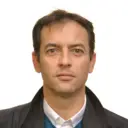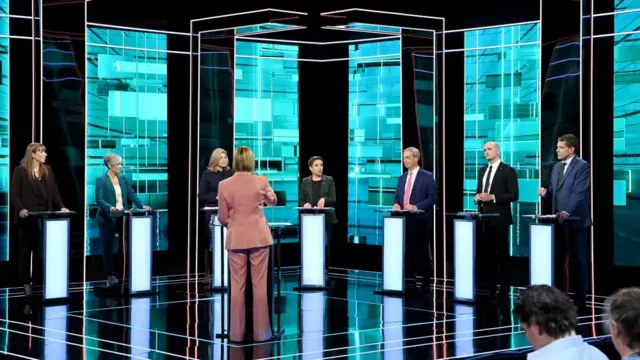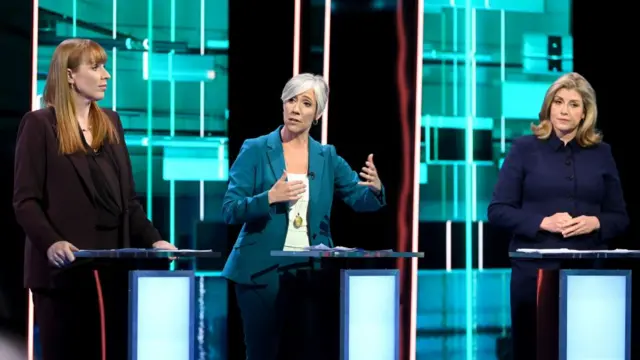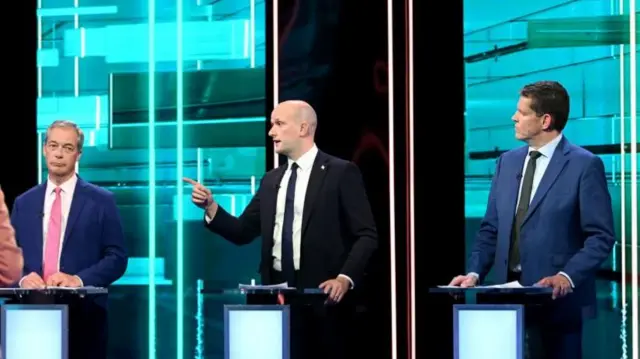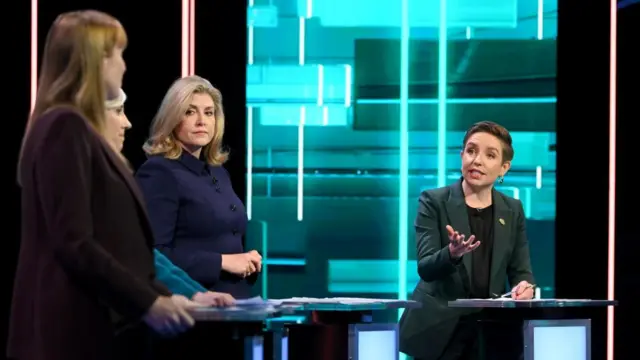We're pausing our coverage for nowpublished at 23:15 BST 13 June 2024
 Aoife Walsh
Aoife Walsh
Live reporter
It's been another frenetic day on the election campaign trail, which kicked off with Labour and Plaid Cymru each launching their manifestos.
Speaking in Cardiff, Rhun ap Iorwerth, Plaid's leader, called for "fair" funding for Wales. If you'd like to learn more detail about the party's plans, I recommend reading BBC Wales political editor Gareth Lewis' in-depth analysis of 11 key pledges here.
We then pivoted to Labour's manifesto launch in Manchester. Party leader Sir Keir Starmer unveiled his party's raft of pledges – many of which we had already heard about before today – that he claimed are fully costed and would bring Britain "stability, not more chaos.”
BBC political reporter Paul Seddon gives more details about Labour's plans here.
Then, not long after Starmer stepped off stage, we brought you lines from the BBC's Joe Pike, who questioned Tory candidate Craig Williams after reports he placed a bet on a July election three days before Rishi Sunak announced a date. You can watch that moment here.
After a wave of analysis and reaction from the day's events, we geared up for a seven-way election debate on ITV.
We saw party representatives clash on issues such as tax, the NHS, immigration, pensions, housing, public services. You can find our summary of the key lines here.
And with that, we're pausing our coverage. Thank you for joining us – we'll see you in the morning.

